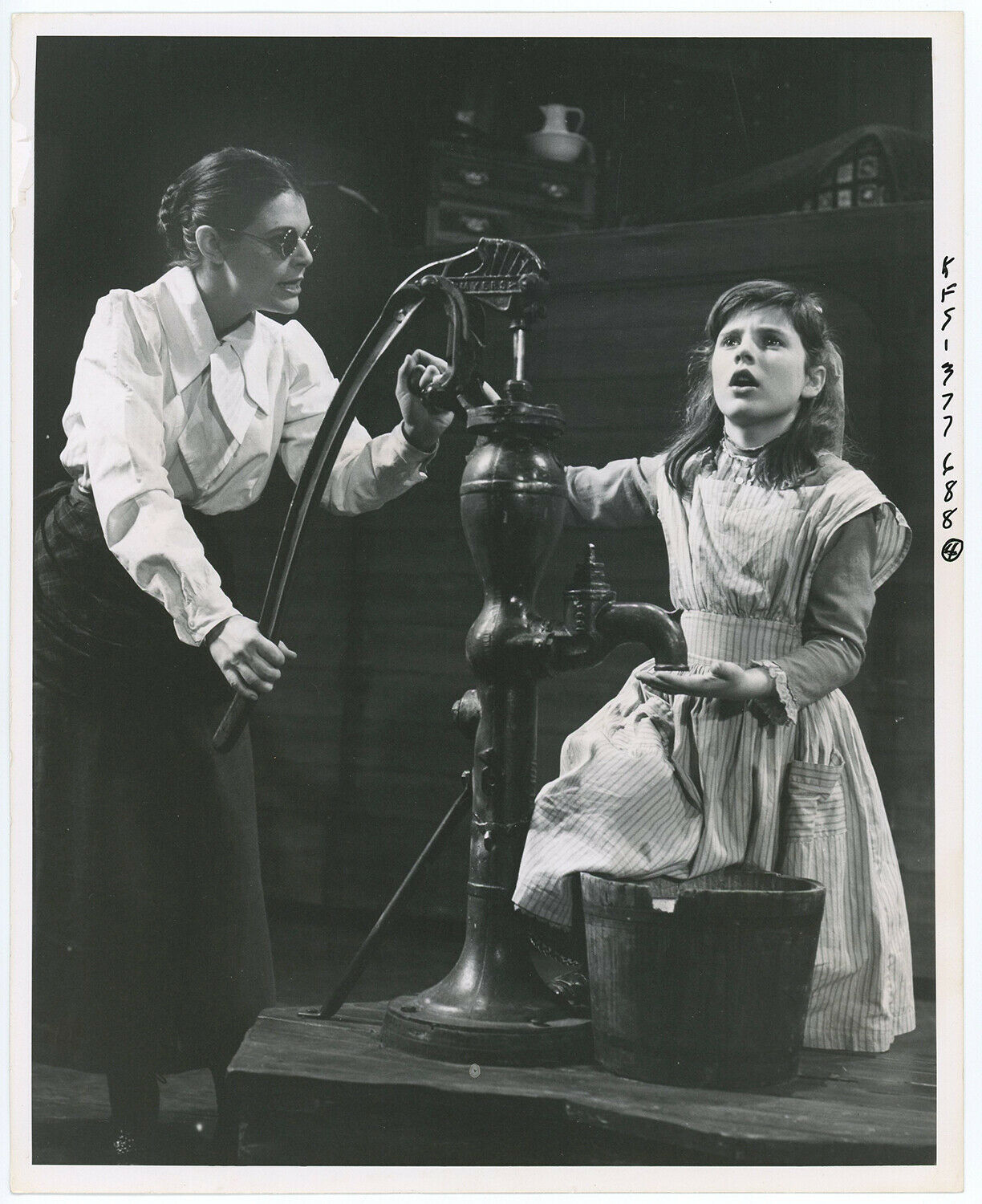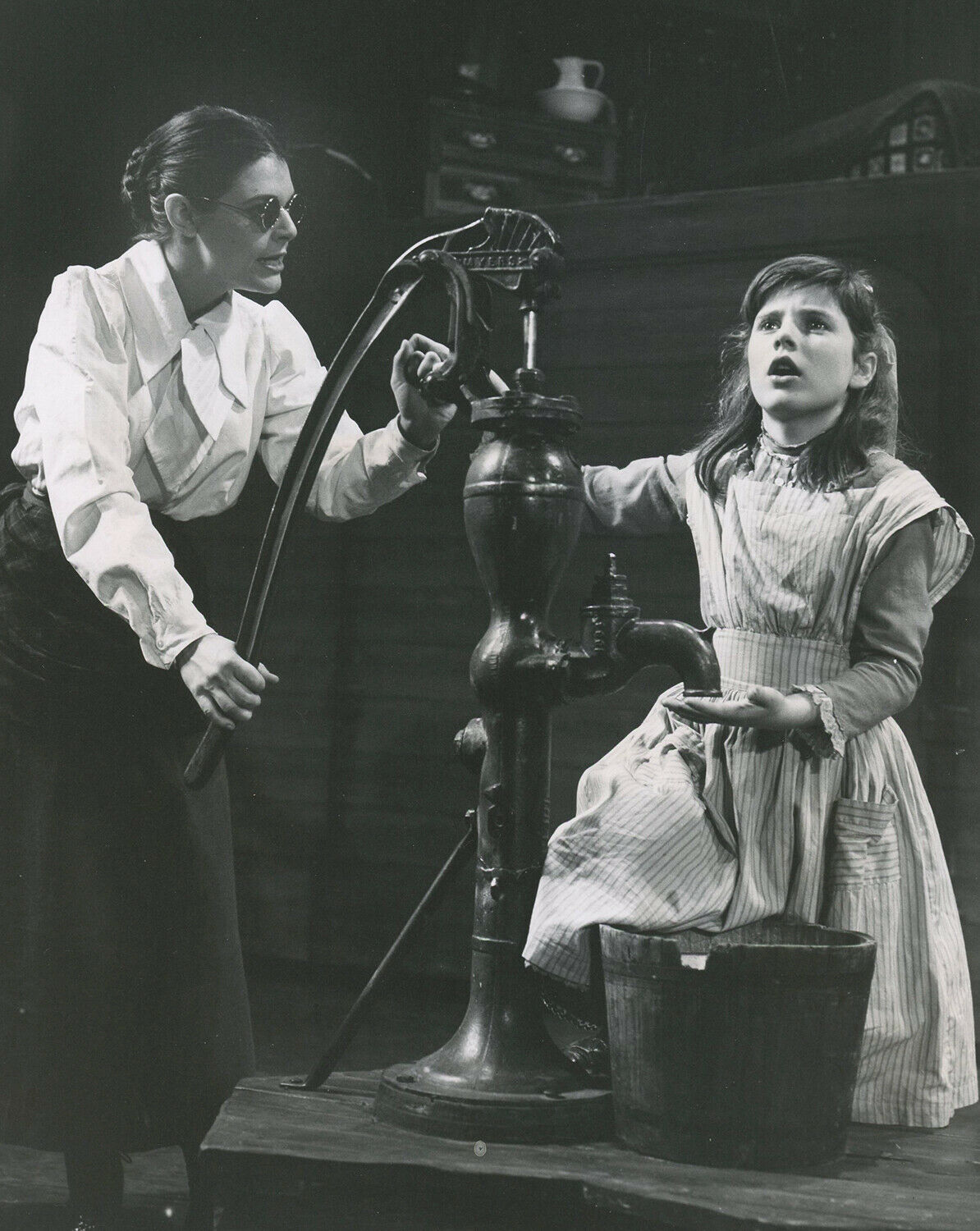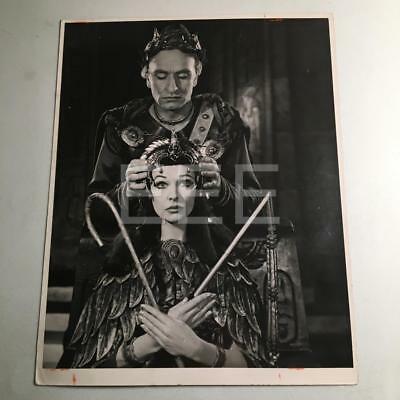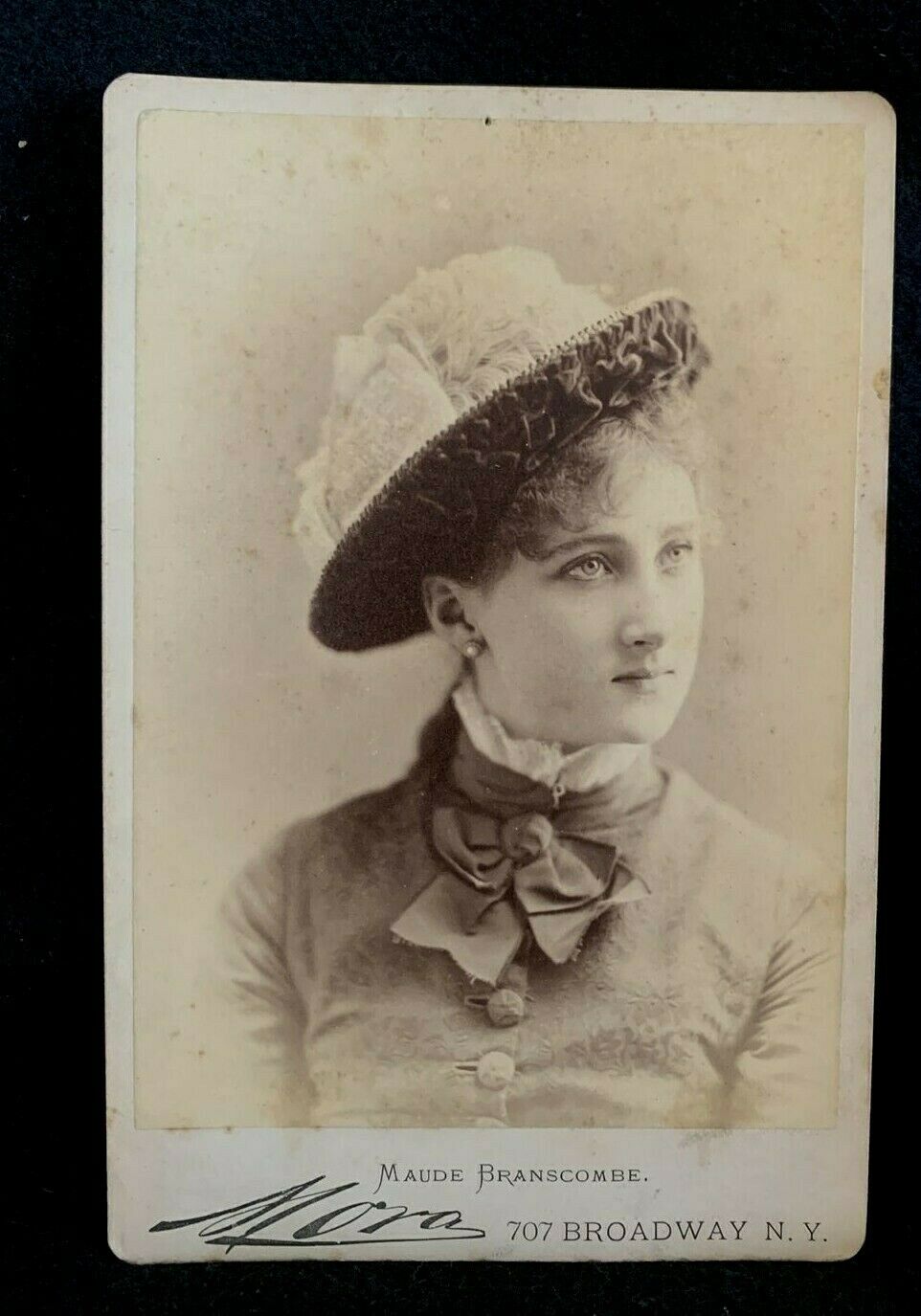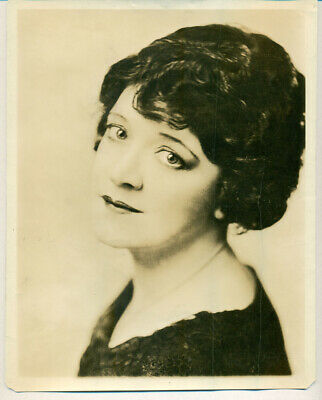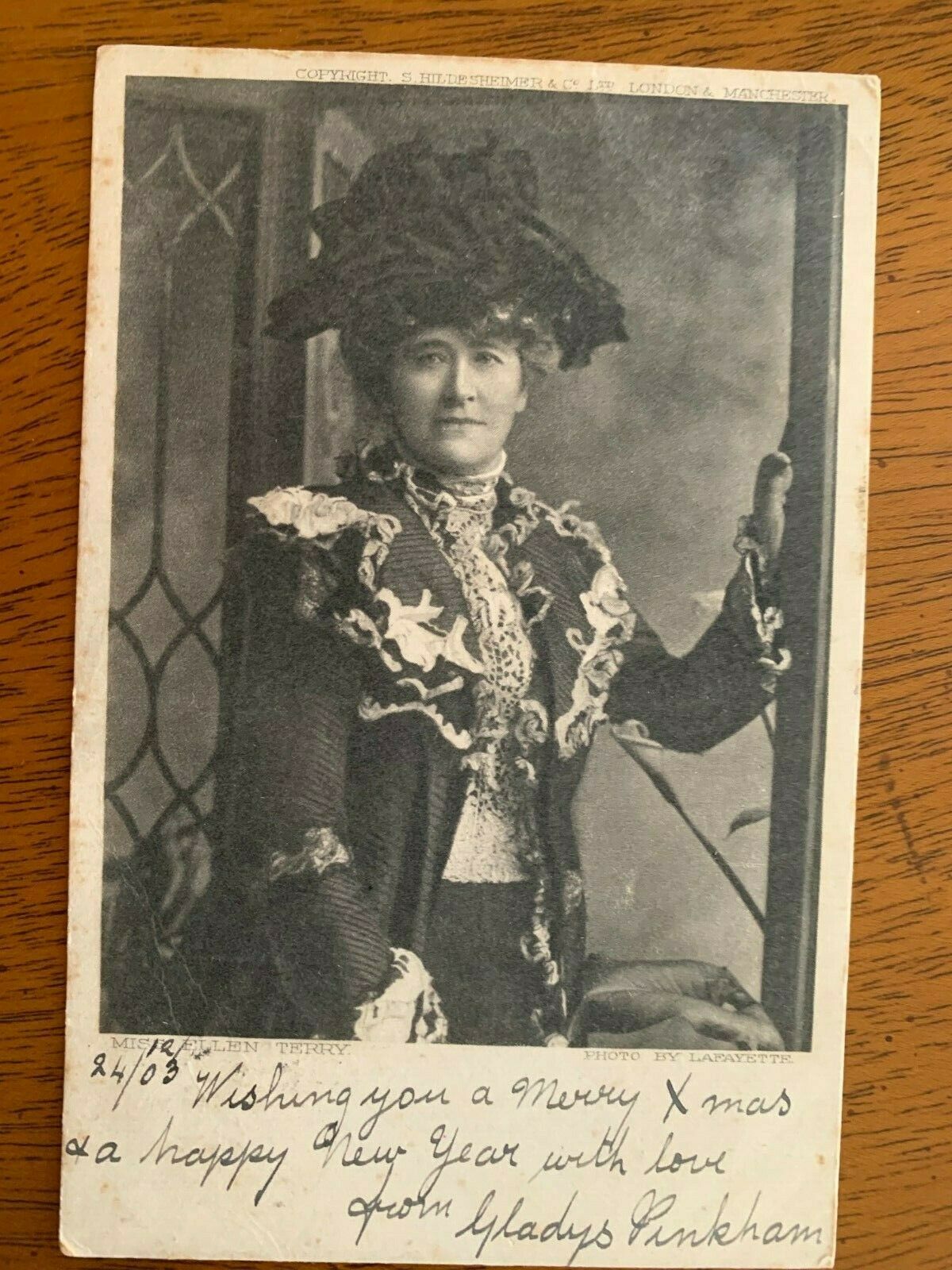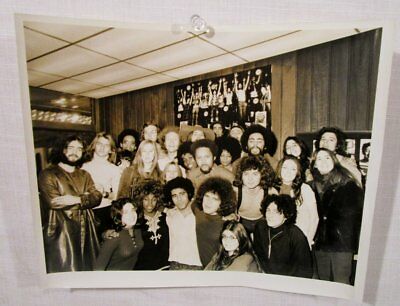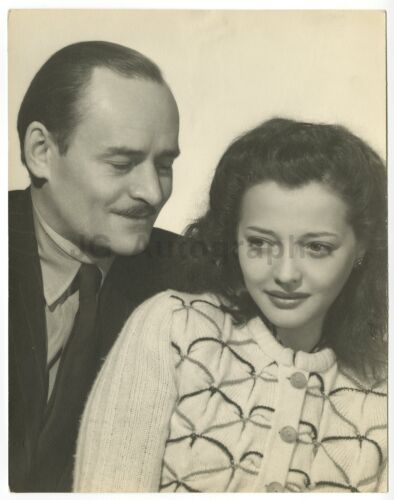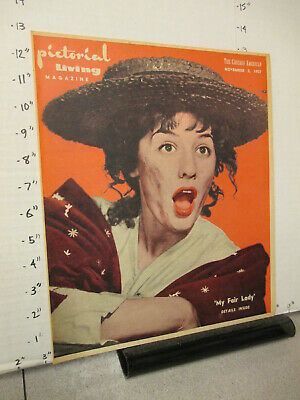-40%
Anne Bancroft & Patty Duke The Miracle Worker on Broadway 1959 Photograph Orig.
$ 2.61
- Description
- Size Guide
Description
ITEM: This is a vintage and original production still photograph of Anne Bancroft and Patty Duke in their roles as Annie Sullivan and Helen Keller in the 1959 Broadway show "The Miracle Worker." The pair would go on to reprise their roles in the 1962 film version, both earning Oscar wins for Best Actress and Best Supporting Actress.Photograph measures 8" x 10" on a glossy single weight paper stock. Ink stamps and handwritten notations on verso.
Guaranteed to be 100% vintage and original from Grapefruit Moon Gallery.
More about Anne Bancroft:
While some actors were lucky enough to find one role for which they would always be remembered, actress Anne Bancroft was both blessed and cursed for her turn as the icily seductive Mrs. Robinson in Mike Nichols' "The Graduate" (1967). Bancroft's legendary career spanned some six decades and encompassed parts as varied as Israeli Prime Minister Golda Meir in the Broadway production of "Golda" (1977), as well as the sight-impaired teacher of Helen Keller, Annie Sullivan, in "The Miracle Worker" (1962), the latter of which earned her both an Oscar and a Tony award. In fact, Bancroft was that rarest of performers who managed to earn her profession's Triple Crown, winning an Oscar, a Tony and an Emmy. Bancroft undeniably fashioned an envious array of performances. Unlike many in showbiz, she also managed to find the love of her life in the form of comedy writer and director Mel Brooks, whom she married in 1964 and remained close to up until her death in 2005. Bancroft also turned in multi-nominated performances in "The Turning Point" (1977), "Agnes of God" (1985) and "Neil Simon's Broadway Bound" (ABC, 1992), all of which underscored an exemplary career unlikely to ever be duplicated again.
Bancroft was born on Sept. 17, 1931 in the Bronx, NY to Italian immigrant parents; her father, Michael, was a dress pattern maker and her mother, Mildred, was a telephone operator. After graduating from Christopher Columbus High School in 1948, Bancroft attended the American Academy of Dramatic Arts, where she studied with Herbert Berghof from 1948-1950. Shortly after the completion of the two-year program, she adopted the stage name Anne Marno and soon found work in live television, a training ground which she found more helpful than any drama class. Bancroft made her professional debut on the anthology drama series, "Westinghouse Studio One" (CBS, 1948-1958) with "The Torrents of Spring" (1950). She also began a semi-regular on the serialized drama, "The Goldbergs" (CBS, 1949-1951). Naturally, Hollywood came calling, which led the actress to sign a studio player contract in 1952. Under orders from legendary producer, Darryl F. Zanuck, she adopted the surname of Bancroft from a list he provided. She later admitted that during her early years in California that she was more interested in becoming a movie star than an actress. The films in which Bancroft was cast were often forgettable at best, like "Demetrius and the Gladiator" (1954), "Gorilla at Large" (1954) and "The Girl in the Black Stockings" (1957).
Frustrated by her lack of progress out West, Bancroft returned to New York where she became a member of the Actors Studio and adopted The Method, which soon resulted in richer, more rewarding work. Under the guidance of director Arthur Penn, she delivered back-to-back Tony-winning stage performances, first opposite Henry Fonda in the two-character love story "Two for the Seesaw" (1958). With renewed vigor, Bancroft next threw herself into her next role, deftly adopting a strong Irish accent to play the indefatigable Annie Sullivan, who doggedly taught a blind, deaf and mute Helen Keller (Patty Duke) to communicate, in "The Miracle Worker" (1959). After earning her second Tony, she reprised the role in a rare instance of Hollywood using the original stage players, co-starring opposite Patty Duke in Arthur Penn's feature film version of "The Miracle Worker" (1962). Hailed by critics for her exemplary performance, Bancroft was bestowed with an Academy Award for Best Actress. It was during this time that Bancroft became entranced with comedy writer, Mel Brooks, whom she met after a previous marriage to a building contractor. The two were inseparable from the moment they met in 1961 and later married in August 1964, embarking on that rare Hollywood marriage that managed to stand the test of time while the two remained ever devoted to each other.
Despite the acclaim she earned from her Oscar-winning performance in "The Miracle Worker," Bancroft continued to divide her time between the stage and screen. After starring in a Broadway revival of "Mother Courage and Her Children" (1963), Bancroft offered a strong turn as an unhappily married woman in "The Pumpkin Eater" (1964) which earned her the Best Actress award at Cannes and a second Oscar nomination. In John Ford's "Seven Women" (1965), she replaced an ailing Patricia Neal as a physician who sacrifices herself to a Mongol warlord in order to save the residents of a religious mission. That same year, she was effective as a would-be suicide who contacts a call-in center looking for someone to talk to in "The Slender Thread" (1965), co-starring Sidney Poitier. But it was her next role as the icy seductress Mrs. Robinson in "The Graduate" (1967) that forever cemented Bancroft into the pantheon of Hollywood's great actresses. Directed by Mike Nichols, the film followed Benjamin Braddock (Dustin Hoffman), a young college graduate who embarks on an illicit affair with an older family friend (Bancroft), only to find true love in her daughter (Katharine Ross). Despite Bancroft being only five years older than Hoffman at the time of the film's release - she was 35 to his 30 - her performance as a woman twice his age onscreen earned the actress a Golden Globe Award and an Academy Award nomination.
As her stature grew, Bancroft became more selective in her roles, eventually putting her acting career on the back burner in order to care for Maximilian, her only child with Mel Brooks. She headlined the well-received special "Annie, the Women in the Life of a Man" (CBS, 1970), which earned the actress an Emmy Award, giving her that rare feat of winning acting's three biggest awards. Returning to features, she was cast as Churchill's American-born mother in the middling biopic "Young Winston" (1972) and was teamed with Jack Lemmon in the screechy version of Neil Simon's "The Prisoner of Second Avenue" (1974). After being miscast as a grande dame in "The Hindenburg" (1975) and performing a cameo as herself in Brooks' "Silent Movie" (1976), Bancroft fared better as an aging ballerina facing old rivalries with her best friend (Shirley MacLaine) in the high entertaining, if soap opera-like drama "The Turning Point" (1977), for which she picked up a fourth Best Actress Academy Award nomination. Also that year, she returned to the small screen to play Mary Magdalene opposite the likes of Laurence Olivier, Michael York, Rod Steiger, Olivia Hussey and Robert Powell in the exemplary miniseries, "Jesus of Nazareth" (NBC, 1977). Back on Broadway, she played another historical figure; this time Golda Meir, in the Broadway play, "Golda" (1977), which earned the actress yet another Tony Award nomination.
Having trained at the American Film Institute's Directing Workshop for Women, Bancroft made her debut behind the camera with "Fatso" (1980), a comedy-drama about an overweight man (Dom DeLuise) and his determination to diet. Working from her own script, she fashioned a rather uneven movie and under her own direction, offered one of her least successful performances as DeLuise's shrill sister. The film ultimately proved to be the only time she sat in the director's chair. Bouncing back, Bancroft offered a nicely formed cameo as actress Madge Kendal in David Lynch's version of "The Elephant Man" (1980) before starring opposite her husband in the comedy "To Be or Not To Be" (1983), in which they played the roles originally made famous by Jack Benny and Carole Lombard; that of a Polish husband-wife acting team who must flee their country after the Nazis invade by using an assortment of disguises. Though not one of Brooks' finer efforts, the remake of the Ernst Lubitsch 1942 classic earned Bancroft a Golden Globe nomination for Best Actress - Motion Picture Musical or Comedy. She next delivered a whirlwind performance as Estelle Rolfe, an unconventional woman who learns she is dying, which leads her faithful son (Ron Silver) to try and fulfill her wish to meet reclusive actress Greta Garbo in "Garbo Talks" (1984).
In the stagey "Agnes of God" (1985), Bancroft played a combative mother superior who tries to protect a young nun (Meg Tilly) from a court-appointed psychiatrist (Jane Fonda) trying to uncover the truth after a baby winds up strangled to death. The role as the tough-talking nun earned her a fifth Academy Award nomination for Best Actress. Bancroft next delivered a touching performance as the feisty writer who conducts a 20-year correspondence love affair with a London bookseller (Anthony Hopkins) in "84 Charing Cross Road" (1986), while offering moments of both high comedy and seriousness as Harvey Fierstein's nagging mother in "Torch Song Trilogy" (1988). After starring in the British television series "Freddie and Max" (ITV, 1990), Bancroft turned in an Emmy-nominated performance as the titular "Mrs. Cage" (PBS, 1992), a suburban matron who shocks everyone following her confession to murdering a shopper in a supermarket parking lot. Also that year, she earned a second Emmy nod for playing the mother of struggling playwright Eugene Jerome (Corey Parker) in "Neil Simon's Broadway Bound" (ABC, 1992).
As the 1990s developed, Bancroft made the transformation from leading star to character actress, which allowed her to deliver finely tuned, nuanced performances in a wide array of roles. Parts as diverse as an operative who polishes the finesse of a female assassin (Bridget Fonda) in "Point of No Return" (1993) or the pot-smoking Glady Joe in "How to Make an American Quilt" (1995) allowed her to display her various talents, but sometimes with limited results. Even a comic cameo as a gypsy - ironically named after the great screen star Maria Ouspenskaya - in Brooks' "Dracula: Dead and Loving It" (1995) merely hinted at her full potential. She did, however, have her moments as a ballsy senator in "G.I. Jane" (1997) and was delightfully theatrical as the Miss Haversham character in the modern day "Great Expectations" (1998). But neither project compared with her earlier work. It took television to offer Bancroft three-dimensional roles which reminded viewers just what she could do with meaty roles. In 1994, she offered a pair of performances that had critics raving. Under old-age makeup, Bancroft embodied the centenarian titular character in CBS' "Oldest Living Confederate Widow Tells All," for which she earned another Emmy nomination. She also starred as a 66-year-old widow determined to return to work in the PBS remake of Paddy Chayefsky's "The Mother," perfectly delineating the character's mixture of fierceness and fragility.
Bancroft further excelled as the estranged grandmother of four children who trek cross-country to visit her in "Homecoming" (USA Network, 1996) and delivered an Emmy-winning turn as a white woman who slowly warms to an abandoned black girl (Kimberlee Peterson) and her siblings in the fact-based "Deep in My Heart" (CBS, 1999). While the actress periodically spoke of retirement, she maintained a steady output of work, offering scene-stealing performances as an overbearing Jewish mother in "Keeping the Faith" (2000) and a glamorous expatriate in 1930s Italy in "Up at the Villa" (2000). She continued to deliver awards-worthy performances on the small screen with an Emmy-nominated performance as the feisty mother of real-life Jewish journalist, Ruth Gruber (Natasha Richardson), who helped shepherd almost one thousand Holocaust survivors from war-torn Europe to temporary asylum in the United States in the miniseries "Haven" (CBS, 2001). The following year, Bancroft returned to Broadway for the first time since 1981, appearing in Edward Albee's "Occupant," inspired by the success of her husband's "The Producers," which he had turned into a stage show at her suggestion. The two later appeared on an episode of "Curb Your Enthusiasm" (HBO, 2000- ), spoofing the monster success of Brooks' show by hiring Larry David (Larry David) to play Max Bialystock in an effort to sabotage the show.
Bancroft went on to play what ultimately became her final dramatic performance as the aging contessa who procures a gigolo (Olivier Martinez) to enliven the life of a widowed former Broadway star (Helen Mirren) in the small screen adaptation of the Tennessee Williams' novella, "The Roman Spring of Mrs. Stone" (Showtime, 2003). Then on June 6, 2005, Bancroft died of uterine cancer while at New York's Mount Sinai Hospital. She was just 73. The news, however, was announced two days later and shocked many who remained unaware, thank to Bancroft's intensely private life. Regardless, her death was mourned by many who had worked with her over the years, including Patty Duke, Arthur Penn and Dustin Hoffman. While haunted throughout her career by her performance as Mrs. Robinson, to whom she was indelibly linked and fought tirelessly to cast off, Bancroft left behind a gallery of complex and intriguing characters, performed throughout her long and venerable career. As for Mrs. Robinson, Bancroft understood the character intimately: "Film critics said I gave a voice to the fear we all have - that we'll reach a certain point in our lives, look around and realize that all the things we said we'd do and become will never come to be - and that we're ordinary." It was something Bancroft would never have to face herself. In both her art and her life, the actress was extraordinary.
Biography From TCM | Turner Classic Movies
More about Patty Duke:
This petite, gifted former child performer had appeared in more than 50 television shows by the time she won Broadway fame at age 12 in "The Miracle Worker." Patty Duke won an Oscar for reprising her role as the young Helen Keller in the 1962 screen adaptation. In 1979, she won an Emmy for playing Keller's teacher--the role originally played on Broadway by Anne Bancroft--in a TV version of the same play.
Duke made a successful transition to teen star playing vivacious twins on the cutesy, popular TV series "The Patty Duke Show" (ABC, 1963-66). But since her disastrous feature appearance in the dreadful cult classic "Valley of the Dolls" (1967) and the commercial failure of "Me, Natalie" (1969), she has mostly concentrated on TV roles, to which she seems more suited. Over her career, Duke has won two other Emmy Awards, as a runaway pregnant Southerner befriended by a black lawyer in the TV-movie "My Sweet Charlie" (NBC, 1970) and as the mentally unstable wife of Richard Jordan in the NBC miniseries "Captains and the Kings" (1976). She played a rather sensuous Martha Washington in both "George Washington" (CBS, 1984) and "George Washington II: The Forging of a Nation" (CBS, 1986). Duke brought her warm maternal presence to "Always Remember I Love You" (CBS, 1990) and garnered praise as real-life journalist Betty Rollin who struggled to assist her mother (played by Maureen Stapleton) to die with dignity in "Last Wish" (ABC, 1992). More recently, she was the mother of a Marine murdered by his trollop wife in "A Matter of Justice" (NBC, 1993) and an Amish woman who helps a detective find an arsonist in "Harvest of Fire" (CBS, 1996). In 1990, Duke co-produced and played herself in the small screen adaptation of her memoirs, "Call Me Anna" (ABC).
After her initial success with her own sitcom, Duke failed to find an appropriate follow-up. She was wife to Richard Crenna and mother of Helen Hunt and Anthony Edwards in "It Takes Two" (ABC, 1982-83) and the first female President of the United States in the short-lived "Hail to the Chief" (ABC, 1985). Duke also was a woman involved with a younger man in the summer sitcom "Karen's Song" (Fox, 1987) and was a woman who becomes a minister and moves to Idaho in "Amazing Grace" (NBC, 1995), which she also co-executive produced.
An unglamorous, earnest performer, Duke has most often played sensitive but troubled types who sometimes display an inner reserve of considerable strength but never lose their essential ordinariness. In her autobiography, she revealed details of her turbulent childhood and her victory over manic depression which she further chronicled in "A Brilliant Madness: Living With Manic-Depressive Illness." Considered one of the best female actors working in TV, Duke became only the second woman to be elected president of the Screen Actors Guild in 1985. (She resigned from the post in 1988.) During her 1973-82 marriage to actor John Astin, she was billed as Patty Duke Astin. Their two sons, Sean and Mackenzie, are both actors. As a producer on more recent projects, she has been variously billed as Anna Duke-Pearce and Anna Pearce.
Biography From TCM | Turner Classic Movies
